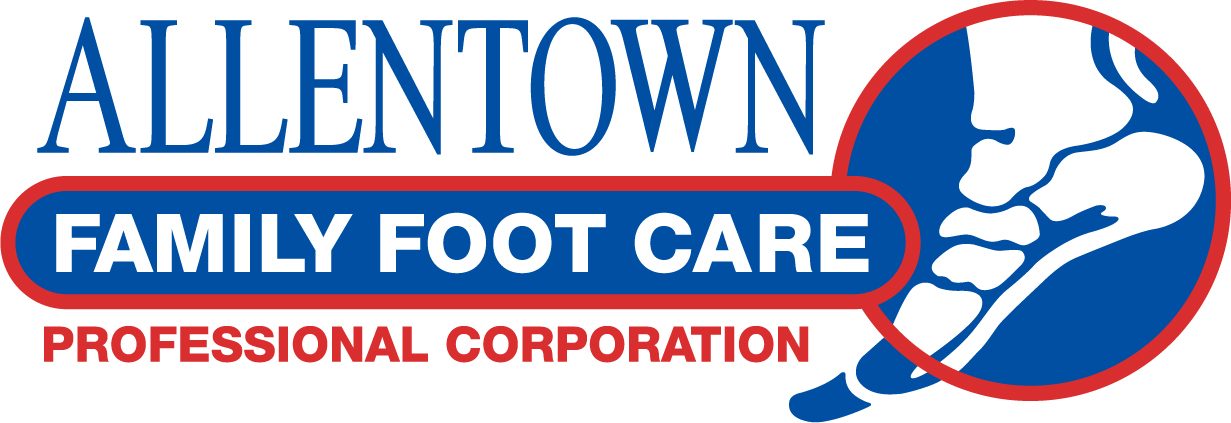We watch them take their first hesitant steps and then we watch them run, scampering down the department store aisles. What happens when our children are unable to run or even walk? Telling us “Mommy/Daddy, my feet hurt.” The very thought is enough to make a parent’s heart ache. What can a dad or mom do to help ensure that a child has happy and healthy feet?
Shoes. Children grow up faster then we imagine. It is important to monitor shoe size and fit. Too tight of shoes can lead to ingrown toenails, blisters and pain. Shoes should fit comfortably in the toes allowing for wiggle room. Length should allow for at least a half of a thumb length from the toe tips to the end of the shoe. AFFC can help to measure your child’s feet and can recommend shoes to fit your child’s needs and activity level.
Orthotics are inserts that go into shoes to help improve the ability at which the foot functions. For children experiencing significant foot pain or who are heavily involved in athletics, an orthotic can help to alleviate pain and can help improve sports performance. Orthotics customized to your child’s feet can be used for two shoe sizes of growth. Similar to eyeglasses, orthotics help to improve our child’s natural abilities, providing a “leg up on the competition” by helping your little one put their best foot forward.
Plantar’s Warts. Participating in sports means your child will encounter locker room floors and poolside walkways. Both places are the habitat for the virus that causes planter’s warts. The virus infects the foot via small cuts in the skin, and sets up shop. Forming a painful raised lesion with black pepper flecks in the center on the bottom of the foot. Using a pair of flip-flops in the shower and poolside can decrease the chances of a plantar’s wart taking root. The doctors at AFFC have several treatment options available to treat your child’s plantar warts.
Athlete’s foot and nail fungus. Drank locker rooms are the lurking place of foot fungus. Manifested as an itchy rash along the foot. This skin condition can put damp in anyone’s style, thus it becomes important to wear flip-flops in locker rooms and to use an antifungal foot powder. Additionally the fungus causing athlete’s foot can cause nail fungus leading to an unattractive and sometimes painful nails.
Stress fracture is essentially a crack in the bone secondary to overuse and high impact. It is important to make sure that your young athlete is properly conditioned and not physically overstressing himself or herself. Use of a good well-cushioned and supportive shoe can reduce the stress placed on the foot. The doctors at AFFC can both diagnose and treat a stress fracture.
As a parent, you want to make sure your child stays healthy and happy. And one area that is often overlooked when it comes to children’s health is foot care. But taking care of your child’s feet is an important part of their overall well-being. Here are some tips to help keep your child’s feet healthy:
- Choose the Right Shoes
When it comes to children’s shoes, it’s important to choose ones that fit well and provide good support. Avoid shoes that are too tight or too loose, and make sure there is enough room for your child’s toes to wiggle. Look for shoes that are made of breathable materials and have sturdy soles.
- Keep Feet Clean and Dry
Teach your child to wash their feet daily with soap and water, and make sure they dry them thoroughly afterward. This can help prevent fungal infections like athlete’s foot. If your child’s feet tend to sweat, consider using talcum powder or cornstarch to keep them dry.
- Trim Toenails Carefully
It’s important to keep your child’s toenails trimmed to prevent ingrown toenails. Use nail clippers to trim straight across, and avoid cutting them too short. If you’re unsure about how to trim your child’s toenails, ask your podiatrist for advice.
- Encourage Physical Activity
Regular physical activity is important for children’s overall health, but it can also be good for their feet. Encourage your child to engage in activities like running, jumping, and playing sports, which can help strengthen their feet and lower legs.
- Get Regular Check-Ups
Even if your child doesn’t have any foot problems, it’s a good idea to take them to see a podiatrist regularly. A podiatrist can monitor your child’s foot health and identify any potential issues before they become more serious.
By following these tips, you can help keep your child’s feet healthy and happy. Sports are an exciting and wonderful part of childhood. The doctors at AFFC are especially trained to treat sport related injuries of both the foot and ankle. Let us help your child to abandon their hesitant painful steps and instead run happily across the playing field.
